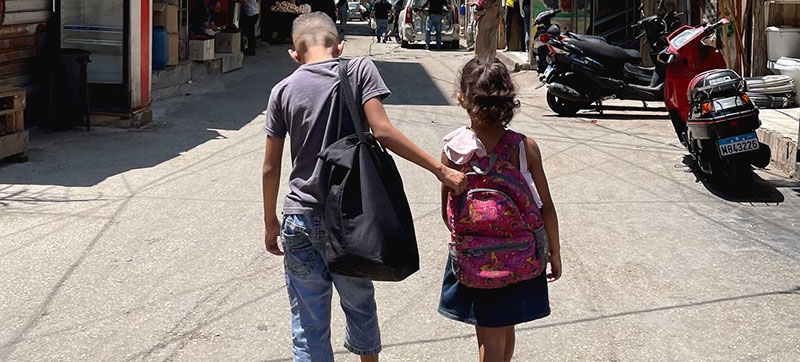 Lebanon Crisis
Lebanon Crisis
Lebanon crisis robbing young people of their futures: UNICEF
New York: More than four in 10 young Lebanese over just a 12-month period, reduced spending on education to buy basic food, medicine and other essential items, and nearly a third, have been forced to stop studying altogether.
These are some of the disturbing statistics contained in a new report published on Friday by the UN Children’s Fund (UNICEF), showing how the crisis is forcing young people to drop out of school and engage in ill-paid, irregular work just to survive and help feed their families.
The report also says that 31 per cent of young people are not in education, employment, or training. In fact, enrolment in educational institutions dropped from 60 per cent in 2020-2021, to just 43 per cent for the current academic year.
Hard choices
Unemployed youth in Lebanon are taking part in training programmes where they are paid a living wage while they learn., by © UNICEF/Fouad Choufany
Speaking to UNICEF, Haneen, 17, said the money she and her family receive every month, is not enough for the expenses.
“Inflation is so high, and incomes haven’t matched this. Every month we have to choose a priority – rent, medicines, food. But we can never have them all”, she said.
According to UNICEF, unless action is taken to reverse current trends, decisions like these will have serious implications for future growth and social cohesion in the country.
“Investments are needed to ensure financial concerns do not prevent them from getting the education and skills they need to eventually find decent work and contribute to the stability and prosperity of Lebanon”, said the agency representative in the country, Ettie Higgins.
For Ms. Higgins, the crisis is already depriving adolescents and youth of the stability that is so important at their age.
“It should be a time for them to focus on their learning, their dreams, their future”, she explained.
Irregular work
While more and more young people are forced to drop out of education, they often find themselves ill-equipped to compete for increasingly scarce jobs and frequently end up taking up low-paying work in the informal sector.
Children at school in Lebanon., by © UNICEF/Fouad Choufany
Working youth have an average monthly income of about 1,600,000 Lebanese pounds (LBP), equivalent to about $64 at the black-market rate.
For Syrian youth in Lebanon, this number is about half, equivalent to a daily income of around a $1 a day.
Seven in 10 were considered unemployed and without any source of income, not having generated any money to live over the week prior to the survey.
Lebanon’s crisis has also led to an increase in other negative coping mechanisms besides reducing education costs.
About 13 per cent of families sent children under 18, out to work. Almost one in two young people reduced expenses on health, and only six out of 10 received primary health care when they needed it.
Because of all this pressure, Hind, 22, told UNICEF that her outlook for the future here is bleak.
“For the first time in my life, I want to leave my country, I want to leave Lebanon”, she said.
Support Our Journalism
We cannot do without you.. your contribution supports unbiased journalism
IBNS is not driven by any ism- not wokeism, not racism, not skewed secularism, not hyper right-wing or left liberal ideals, nor by any hardline religious beliefs or hyper nationalism. We want to serve you good old objective news, as they are. We do not judge or preach. We let people decide for themselves. We only try to present factual and well-sourced news.







